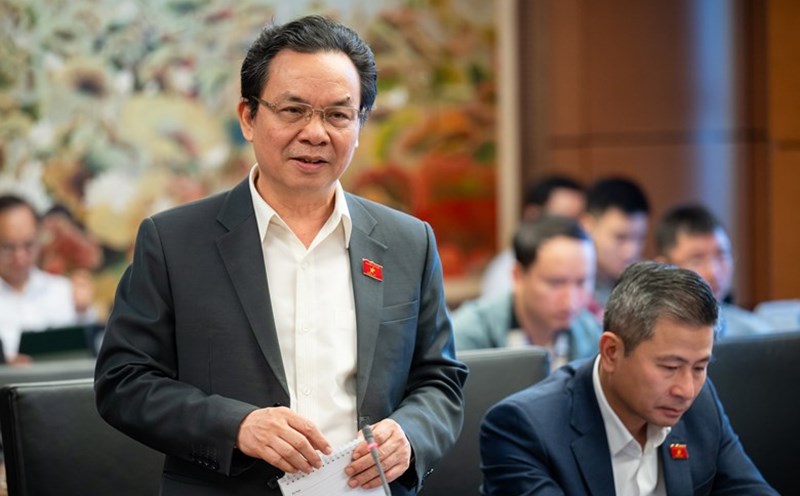On the morning of November 23, the National Assembly discussed in groups the draft Law on Digital Technology Industry.
Speaking, delegate Ta Thi Yen (Dien Bien delegation) emphasized that the draft law aims to create conditions for applying digital technology to socio-economic activities, encourage innovation and control risks arising in practice.
According to delegates, there are opinions that it is necessary to consider whether the regulation of the digital technology industry as a separate economic sector is truly suitable for the division of economic sectors and science and technology according to international practices.
The delegate cited the definition in Clause 1, Article 3 of the draft law, that digital technology is understood to include information technology and new generation digital technologies.
Thus, it can be understood that this law will regulate fields in the information technology, high technology and science and technology sectors with innovation content based on the digital foundation that have been promulgated by law.
In the process of national digital transformation, building a digital economy, digital government, digital society, digital citizens, etc., it is impossible to group everything related to digital technology into a separate industry.
Furthermore, the report of the Committee on Science, Technology and Environment also pointed out that in the current context, no country in the world has legal regulations for this field. Therefore, the delegate suggested considering clarifying this content.
Some contents are regulated for the first time in legal documents such as digital assets, semiconductor industry, artificial intelligence, regulations on digital technology human resources, digital technology capacity framework, controlled testing mechanism... need to be studied and clarified to have high feasibility and be linked to the practical situation of our country.
Regarding the policy of developing the digital technology industry, the delegate of Dien Bien delegation said that some contents such as research and development (R&D), infrastructure, finance, human resources, market, standardization, and digital data are the core.
However, these provisions in the draft law are still quite general, lacking strong breakthroughs, and unclear about the subjects of application, making them difficult to implement in practice. Therefore, they need to be clarified, deepened, and made more specific, especially the incentive and preferential mechanisms and policies that are superior, focused, and consistent with Vietnam's socio-economic conditions to ensure feasibility.
Incentives on land, tax, finance, investment and other preferential mechanisms for developing the digital technology industry may conflict with current relevant laws, so they need to be studied and resolved.
Agreeing with the need to regulate digital assets in the law, delegates suggested researching and referring to the experiences of countries around the world to build a digital asset management policy framework suitable to the specific conditions of Vietnam, especially ensuring consistency with the current relevant legal system.
Delegates agreed on the necessity and basically agreed on the content of the regulation on controlled testing mechanism in the draft law, especially in the field of financial technology, in the direction of encouraging, motivating, and promoting innovation.
"In the trend of outstanding, stormy development of science and technology, there are many inventions that seem like "science fiction" that can become reality" - Delegate Ta Thi Yen expressed her opinion.
Therefore, according to delegate Yen, it is necessary to have regulations on controlled testing mechanisms to soon put research results into practice and to test and prove the necessity and effectiveness of those inventions and innovations.











